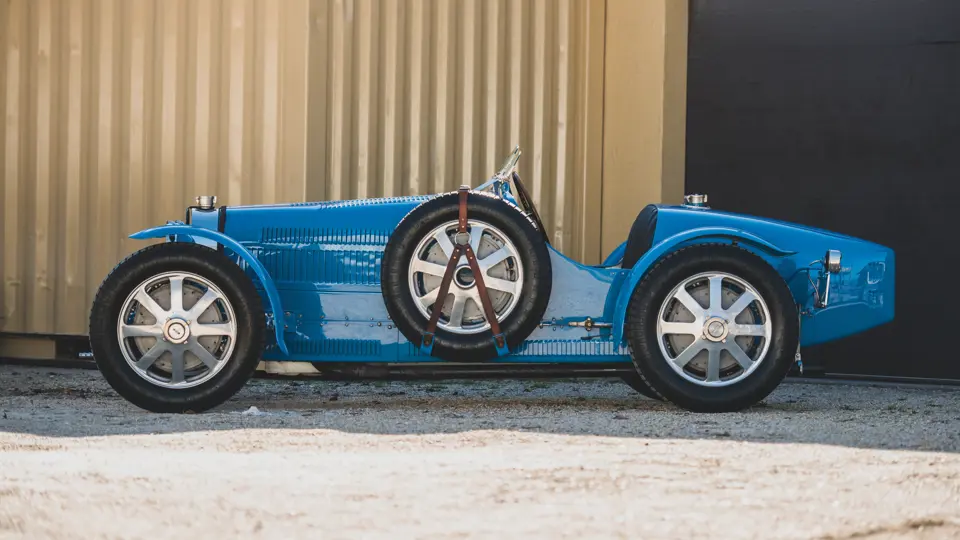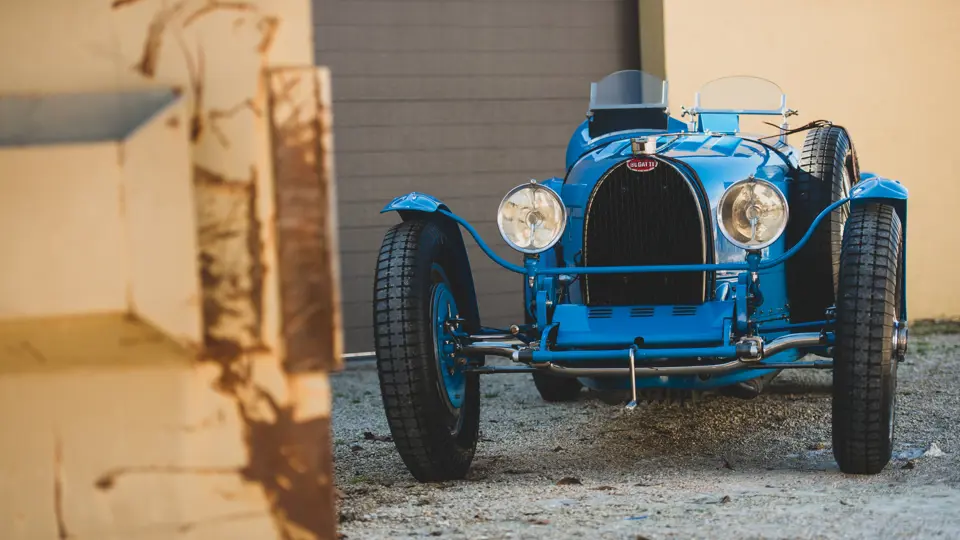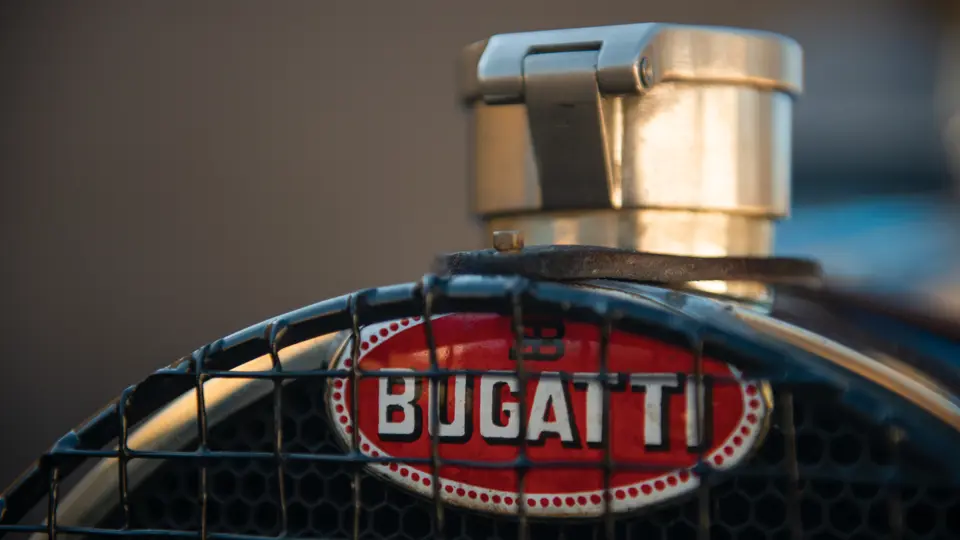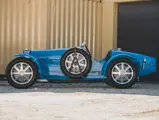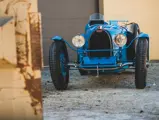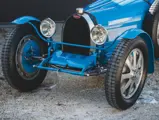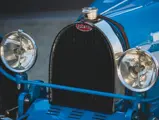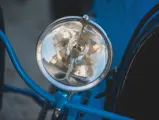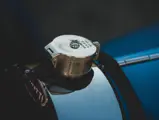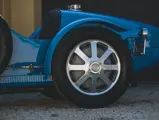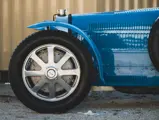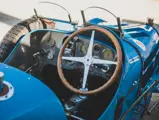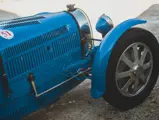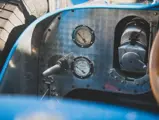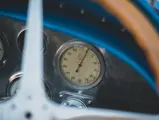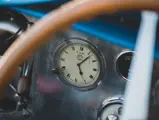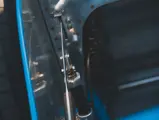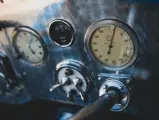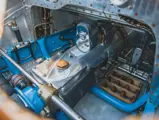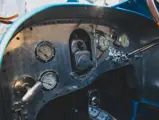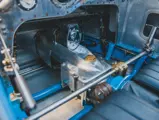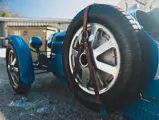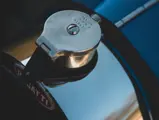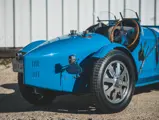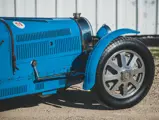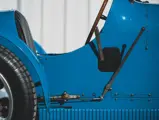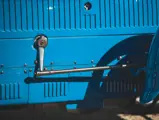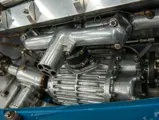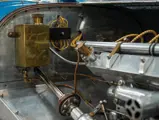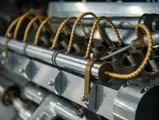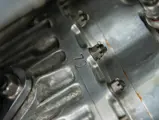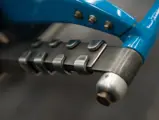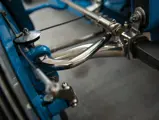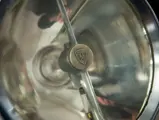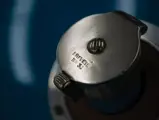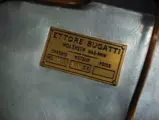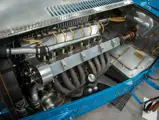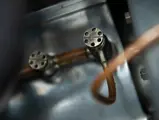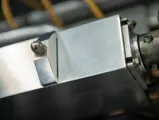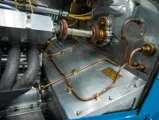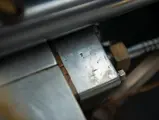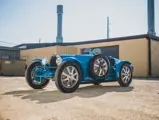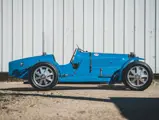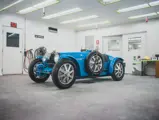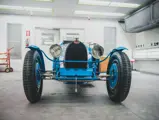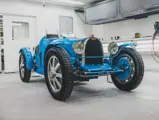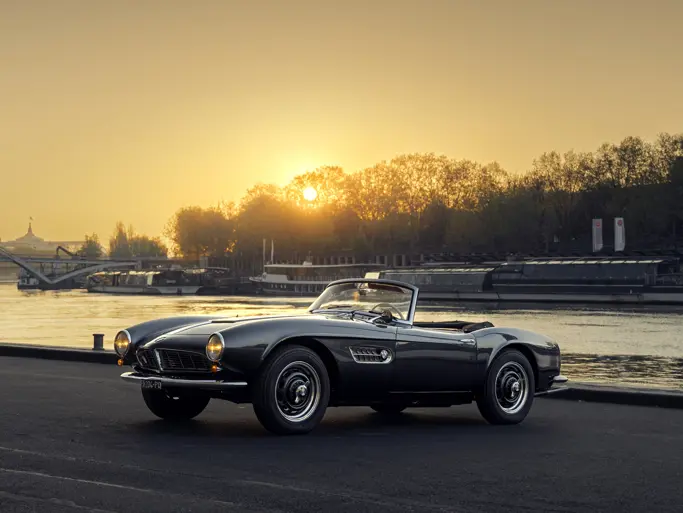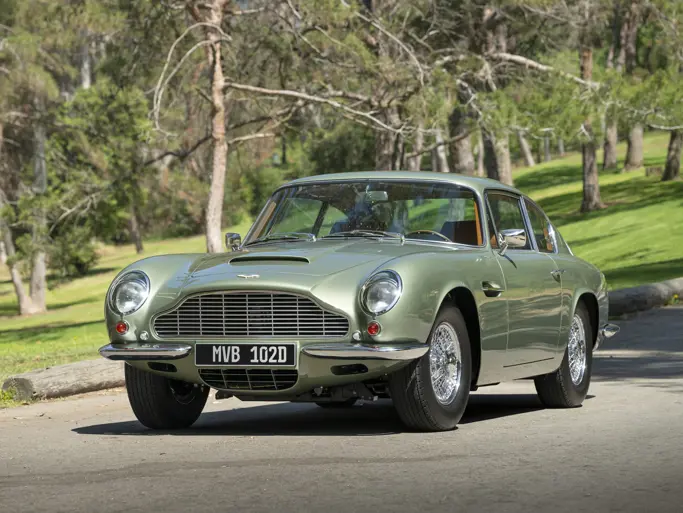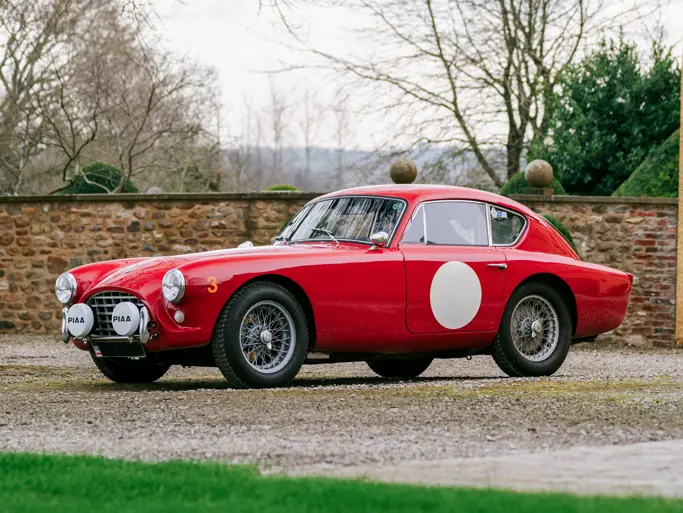
1933 Bugatti Type 51 Grand Prix
{{lr.item.text}}
$758,500 USD | Sold
{{bidding.lot.reserveStatusFormatted}}
- One of four cars used by the 1933 factory team of Varzi, Dreyfus, and Williams
- Former 17-year ownership by Bugatti collector extraordinaire Peter Mullin
- Documented with FIVA passport and full report by Bugatti historian David Sewell
- Well-known example prepared for vintage racing and event use
- Striking example of Bugatti’s dual-overhead cam classic
Introduced in 1931, the Bugatti Type 51 was the latest iteration of the company’s time-honored two-seat race car design that originated with the Type 35. Utilizing the engine architecture Ettore Bugatti licensed from Harry Miller’s successful Indianapolis race cars, the Type 51 featured a dual-overhead cam version of the supercharged straight-eight, now enlarged to 2.3 liters. Though the Type 51 struggled in competition against newer and more technologically advanced state-sponsored machines from Italy and Germany, the model was a long-term success with marque enthusiasts and vintage racers. Approximately 40 examples were ultimately built through 1934, and they are considered the apogee of Bugatti’s most celebrated race car design.
Claiming important competition history and documented with a comprehensive report by independent Bugatti historian and author David Sewell, this Type 51 is a well-sorted example ideal for event use and historic racing. Chassis no. 51153 is recorded in factory records of April 1933 as the first of a batch of five Type 51s slated for build. The car was prepared for use as a Works entry for the 1933 season, amply clarified by numerous repair notes regarding engine teardowns and rear axle ratio changes.
On 4 July 1933, the Type 51 was registered to Automobiles Ettore Bugatti of Molsheim and served as a factory race and test car for the following nine months. As racing entries were not generally tracked by chassis number at the time, it is difficult to unequivocally distinguish one factory car from another, but it is believed that 51153 likely participated in several important races while driven by the famed René Dreyfus.
At the Belgian Grand Prix on 9 July 1933, Bugatti entered three Type 51 examples, driven by Achille Varzi, Dreyfus, and William Grover-Williams, who finished 2nd, 3rd, and 6th, respectively. At the Dieppe Grand Prix six days later, Dreyfus placed 2nd while Williams’ car retired early. As drivers often retained the same car throughout the season, it is reasonable to assume that Dreyfus drove 51153 to his 2nd-place finish at the Nice Grand Prix on 6 August and at the Coppa Acerbo in Pescara the following week. The car may also have been driven by Dreyfus at the Czechoslovakian Grand Prix on 17 September, where the Frenchman finished 4th.
Following the 1933 season the Bugatti was mechanically overhauled by the factory, including the fitting of an extremely rare rear-axle ratio, 11 × 55, the only recorded use of such a ratio in Bugatti racing history. As conjectured by Mr. Sewell, this high-torque low-speed ratio may have been intended for the Monaco Grand Prix on 2 April 1934, where Pierre Veyron finished 9th in a Type 51.
In early April 1934, the Type 51 was mechanically renewed again by the factory in preparation for sale. On 13 April it was invoiced to Giovanni Alloatti, a resident of Turin. Alloatti entered his new Type 51 at the Targa Florio on 20 May, but unfortunately was out of the race by the second lap following an accident. The Bugatti returned to the factory for further repairs, and this may be the point at which the car’s current frame, no. 256, originally for a Type 35, was installed as presently configured.
In December 1936, the Type 51 was imported to England by Jack Lemon Burton. After being domiciled during the early war years, 51153 was sold in 1942 to Allan Arnold, scion of the coachbuilding concern Arnold of Manchester. Upon the war’s conclusion, Arnold began modifying the Bugatti for sprints and hill climbs, replacing the coachwork with a lightweight two-piece body with cycle wings, presumably designed and built at the Arnold coachworks.
The Bugatti was then entered at various events in northern England over the next two years, setting a best time at Shelsley Walsh during two appearances, racing Prescott three times, and Brighton once. In early August 1947 the car set a course record of 14.8 seconds at the Hartlepool quarter-mile sprint. Through 1949 additional modifications were undertaken that included the installation of an ENV pre-selector gearbox, Newton telescopic shock absorbers, externally actuated Lockheed hydraulic brakes, and dual external exhaust pipes. Racing at sprints at Weston-super-Mare and Queensbury, Arnold also experimented with a two-stage supercharger from a Type 50.
In May 1950 Arnold sold the Bugatti to J. Wilkins, who reinstalled the original gearbox, and attended the Nottingham Sports Car Club meet at Gaston in 1951. Chassis 51153 next passed to J.M. Pratt, the owner of a garage near Brampton, before being acquired by Jim Barry of Heywood, Lancashire. Around 1959 chassis 51153 was imported to the U.S. and offered by New York’s Vintage Car Store, now clothed with a bobtail racing body formerly used on chassis 51152.
Hugh Conway’s seminal 1962 Bugatti Register shows that the car was next owned by Lynn Mayfield of La Jolla, California, and in 1963 Mayfield sold the car to the well-known marque enthusiast Raymond Jones, of Michigan. Jones reportedly purchased 50 Bugattis in the aftermath of Conway’s important register, second only to the Schlumpf brothers’ acquisition spree. Chassis 51153 was the fourth Bugatti that Jones acquired during this period, and in 1967 he sold the Type 51 to his friend and fellow Michigan resident Ernest “Jack” Nuttle, who sought to restore the car.
As many mechanical components were no longer in perfect order, Nuttle traded several to Jones for fresher substitutes handpicked from other Bugattis in his stock. For this reason, many of the original elements, including the engine and chassis frame, were eventually installed by Jones onto one of his other projects. (This other chassis was later purchased by Lord Raglan in the late 1970s and eventually built into a well-known race car in Great Britain.) Available on file is the extensive report compiled by Bugatti historian David Sewell that details the history and composition of this Bugatti, known as the “Nuttle” Type 51. This includes correspondence from Sewell to then owner Peter Mullin and well-known Bugatti restorer Jim Stranberg that the car retains its original chassis plate which is affixed to the original bulkhead.
Mounted with faithful recreation coachwork, 51153 completed restoration in 1973, and Nuttle used the car for some 10 years before selling it to Bob Shaw of Antioch, Illinois. Acquired by the esteemed collector Bill Jacobs in 1986, the Bugatti subsequently passed to Peter Giddings and then Joe Masin of California before being sold in 1994 to preeminent marque collector Peter Mullin.
Acquired by the consignor in 2011, this Type 51 possesses the most legitimate claim as the authentic 51153, despite that the “Raglan” Type 51 bears many of this car’s original components and has often been identified with this chassis number. According to Sandy Leith, the registrar of the American Bugatti Club, “The Nuttle T51 [this car] contains the single most important element of chassis 51153; that of continuous history. Whatever parts came and went over the course of its lifetime prior to the ownership of Raymond Jones and after the restoration by Jack Nuttle, the car was and is chassis 51153.”
Claiming use by the legendary Works team of Varzi, Dreyfus, and Williams during the 1933 grand prix season, this beautifully prepared Type 51 offers affordable entry to the ranks of Bugatti ownership. The recipient of a FIVA passport is correctly equipped with proper factory mechanical components and is eligible for the finest vintage racing events worldwide. This Type 51 invites marque enthusiasts to consider this piece of Bugatti history for immediate enjoyment and competitive use at historic racing events.
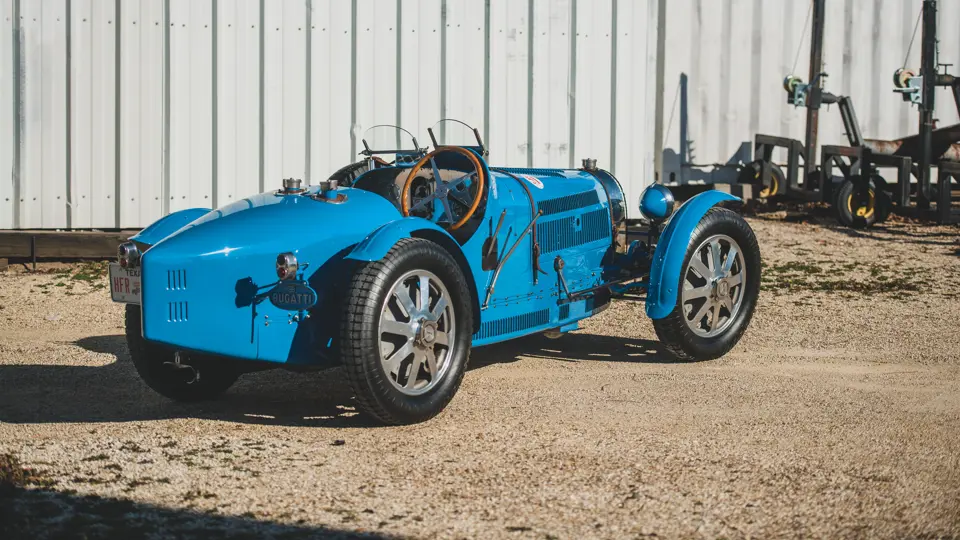
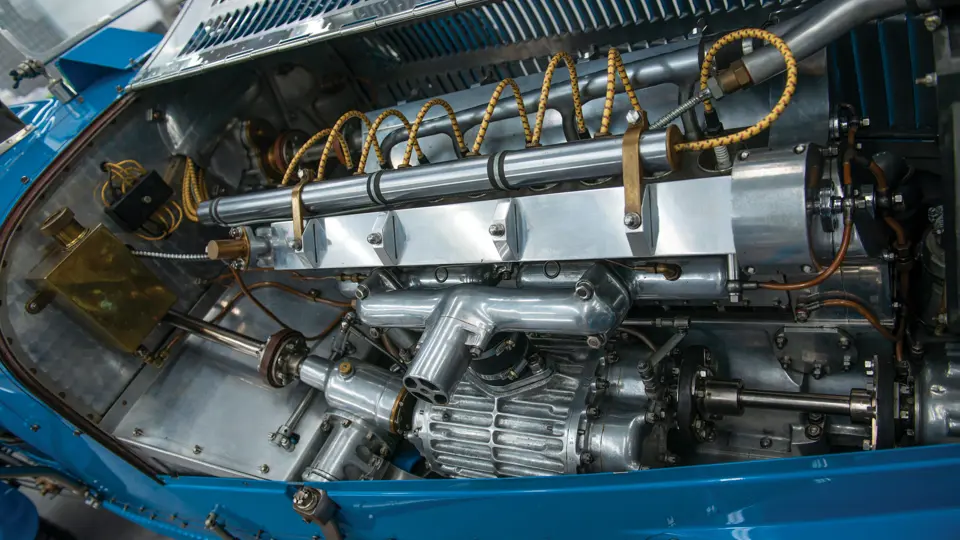


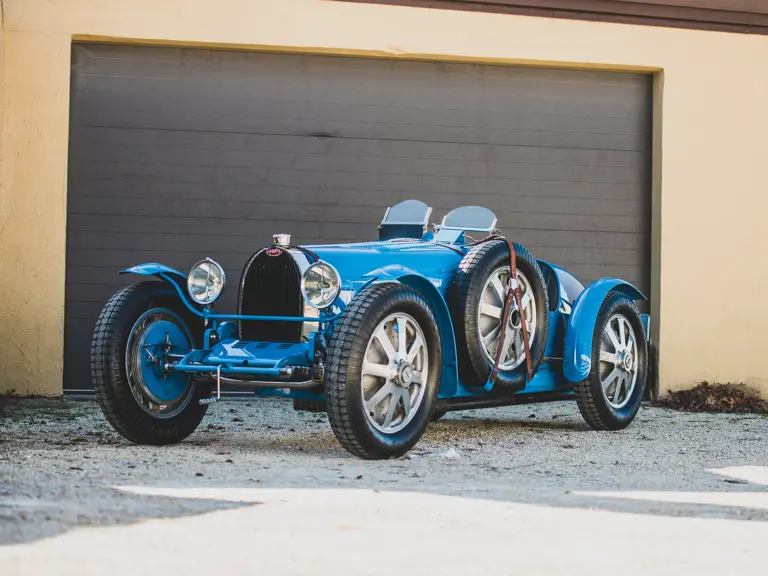
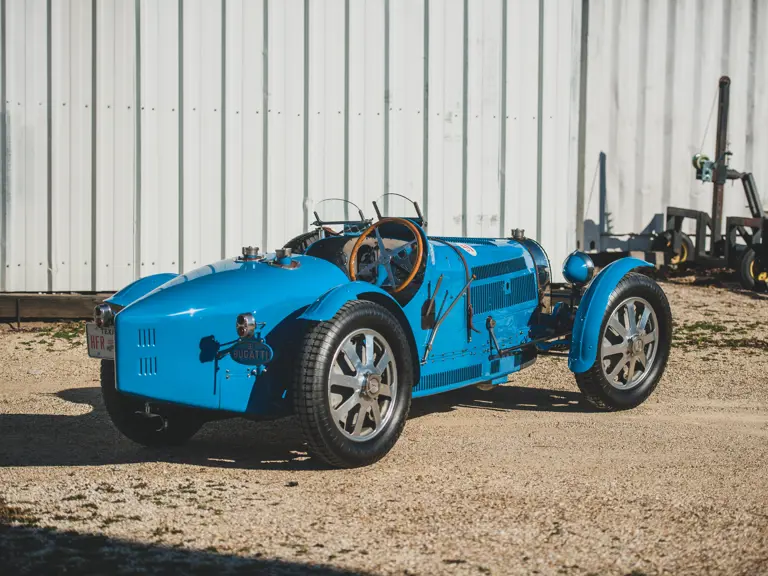
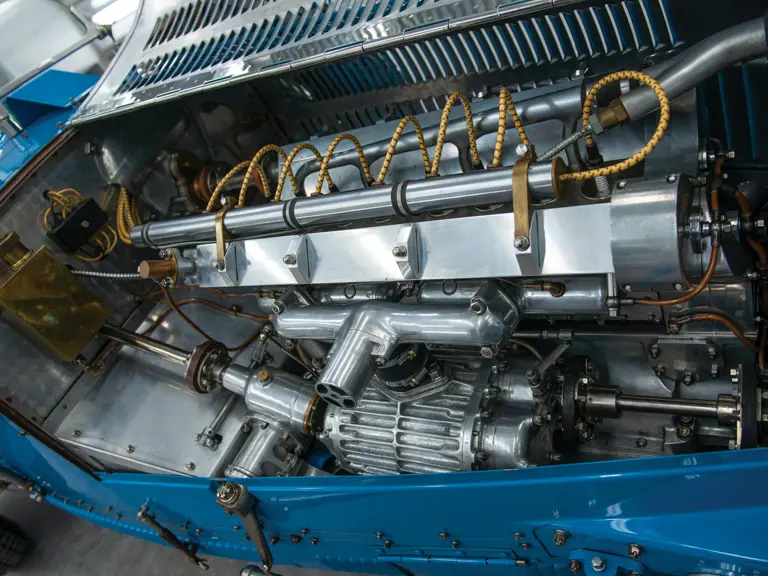
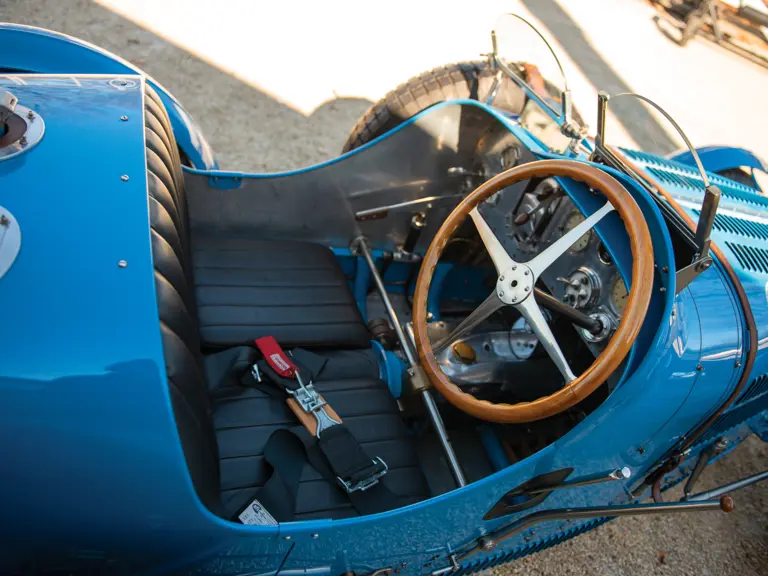
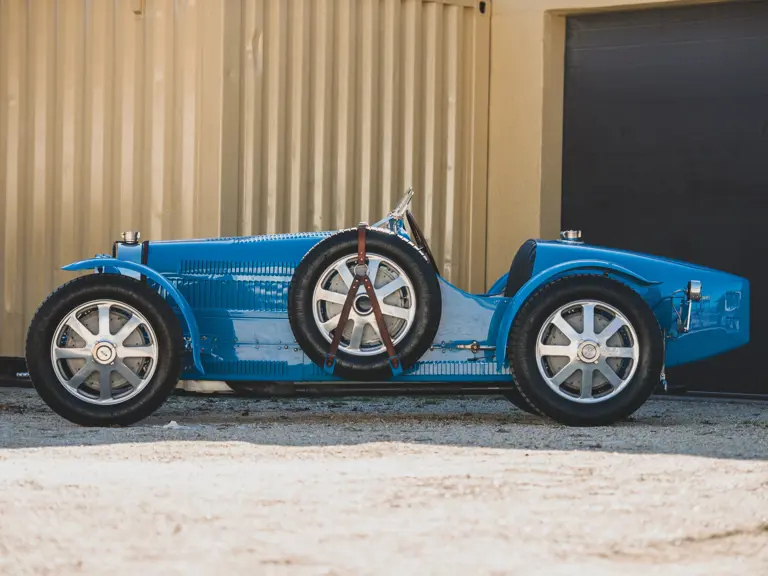
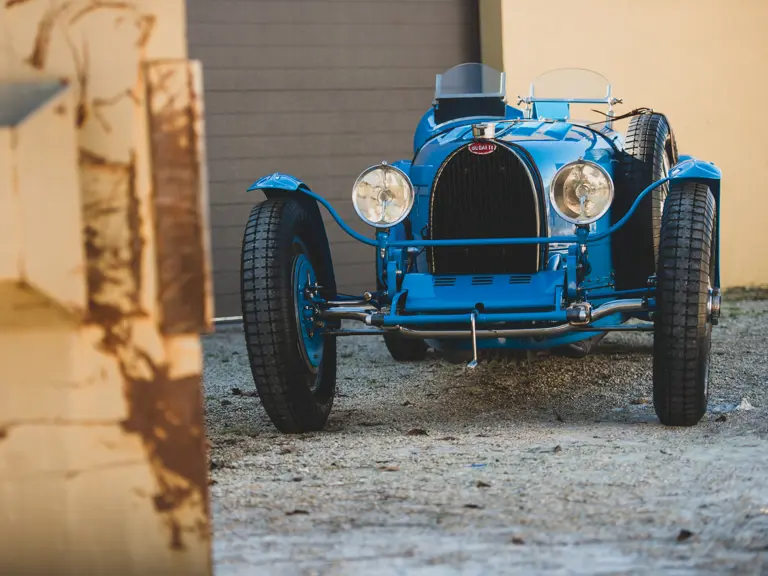
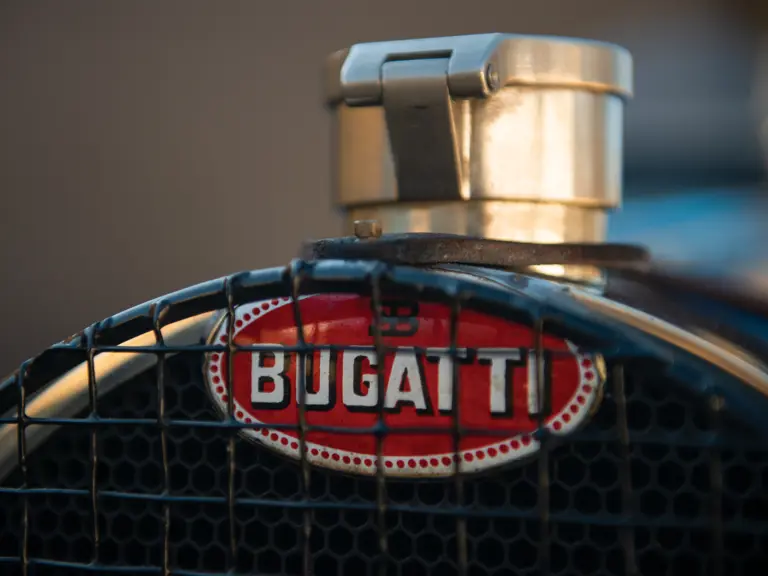
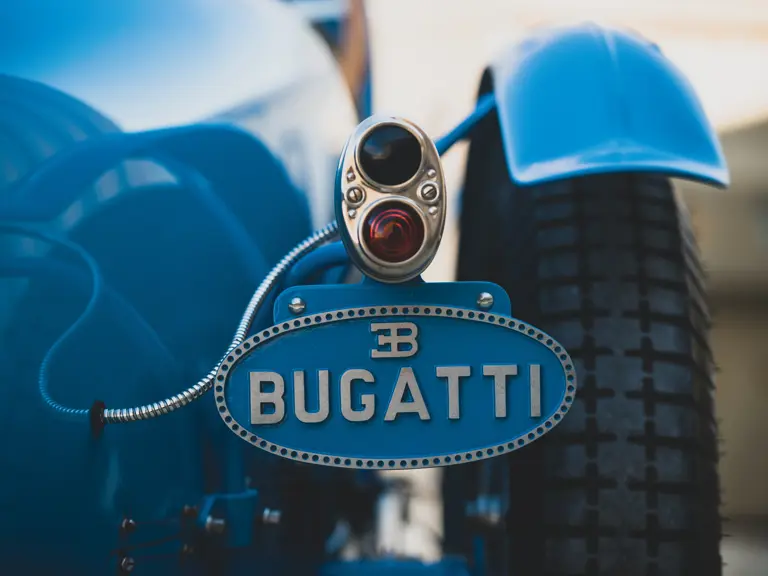
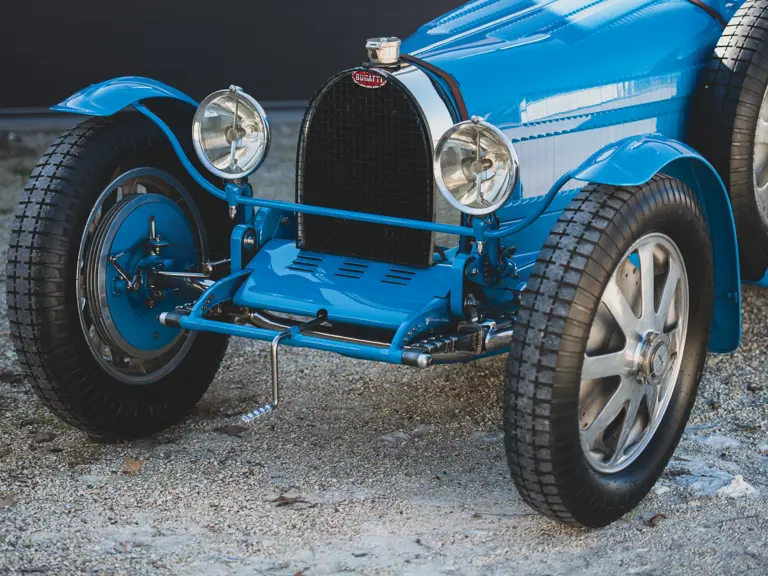
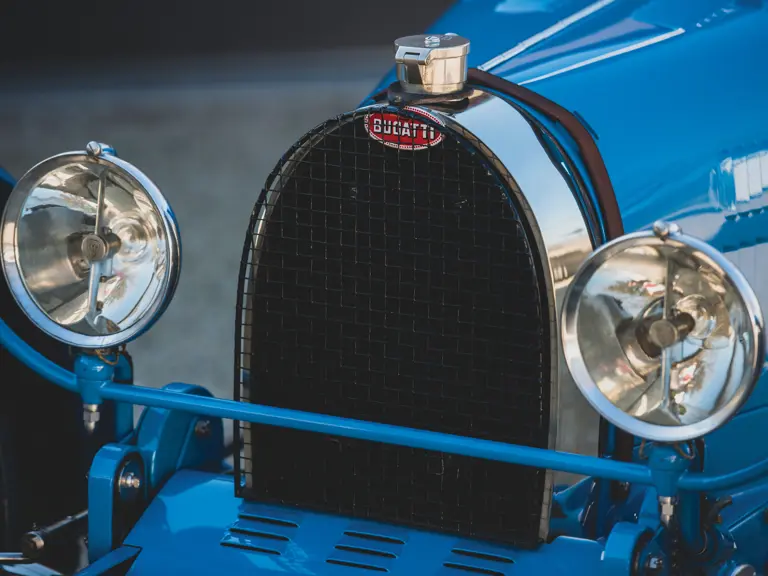
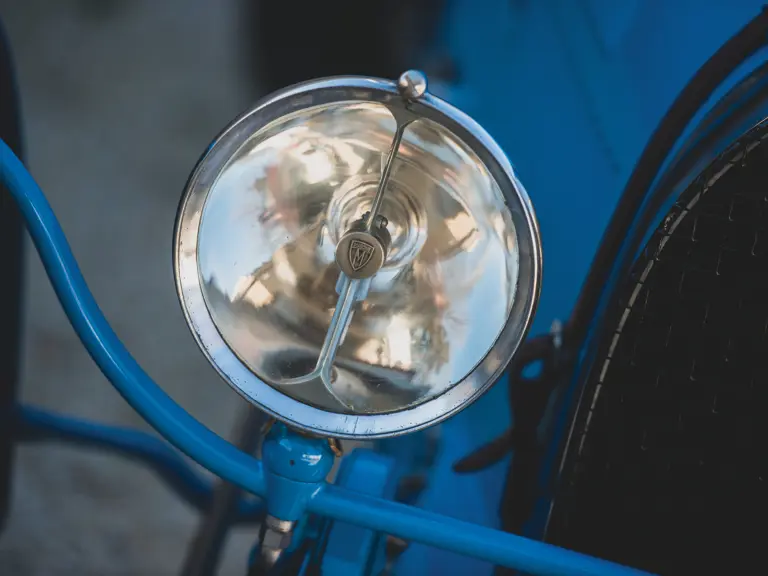
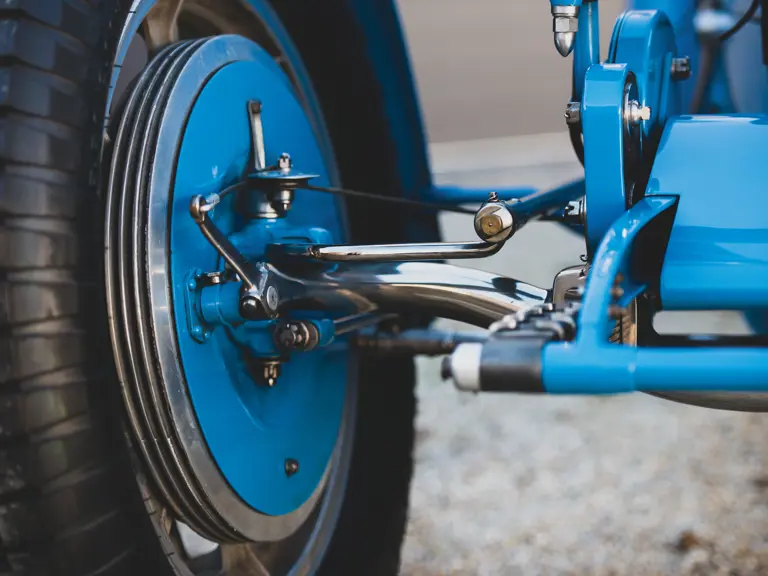
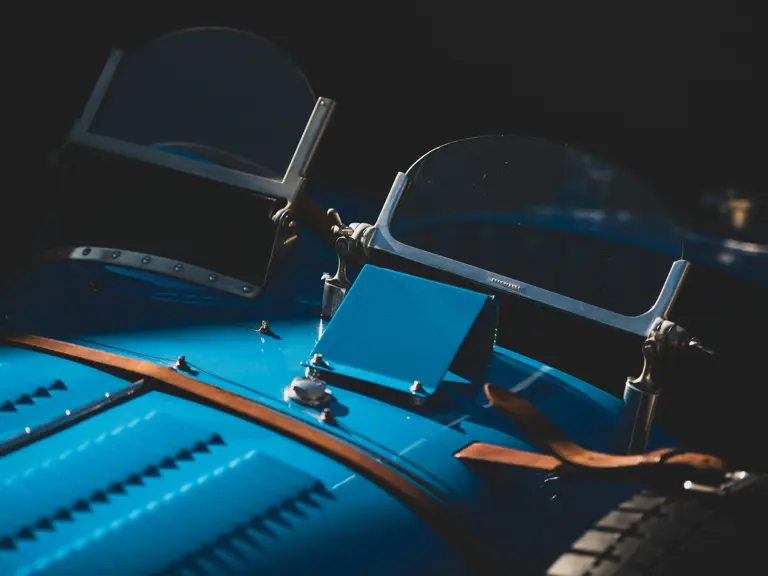
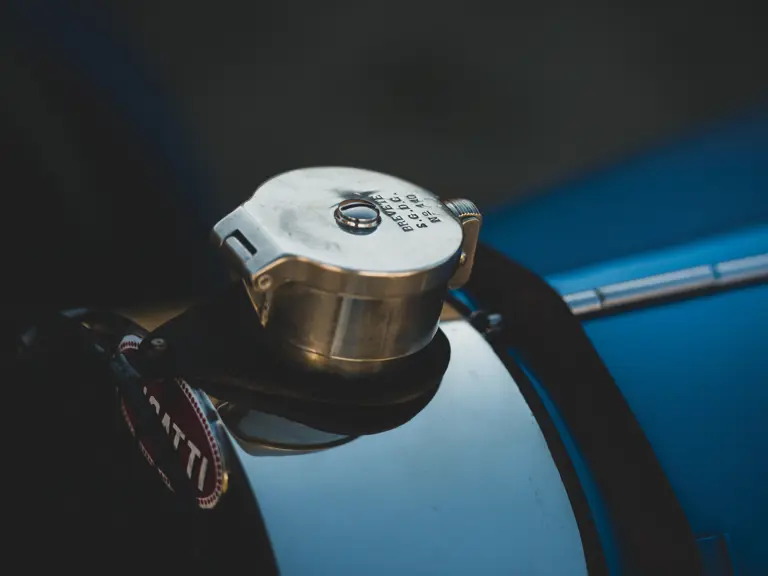
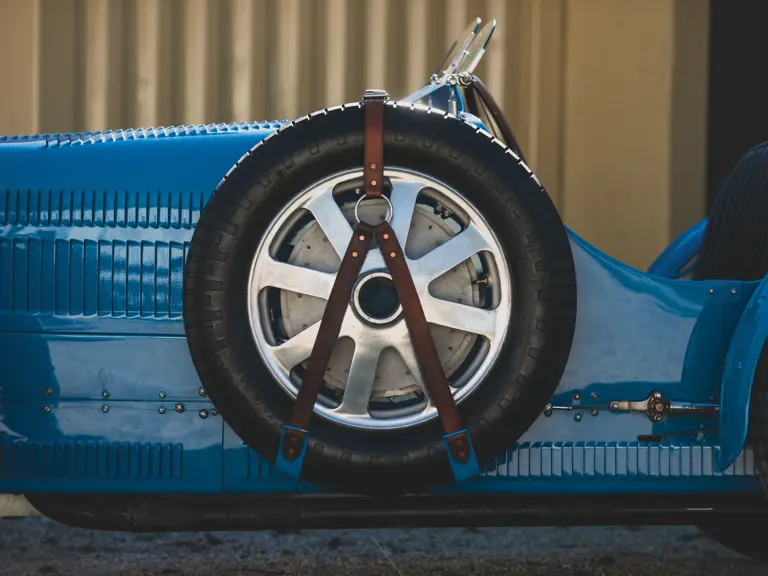
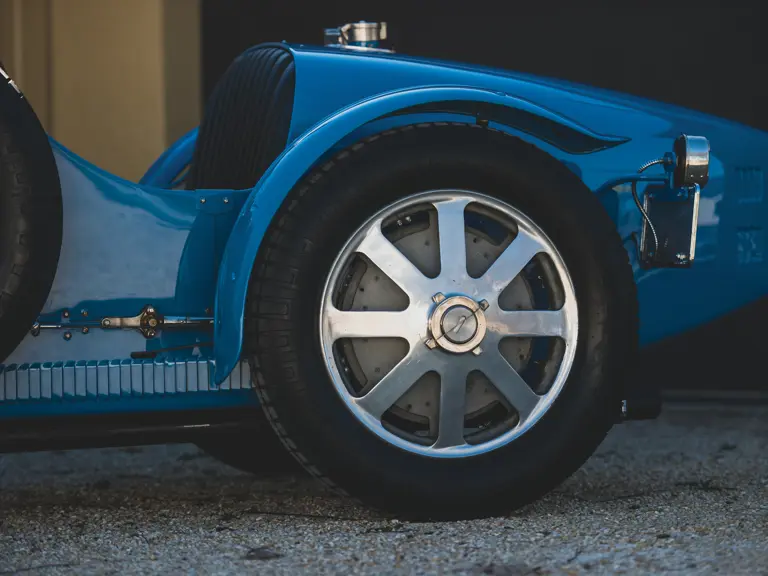
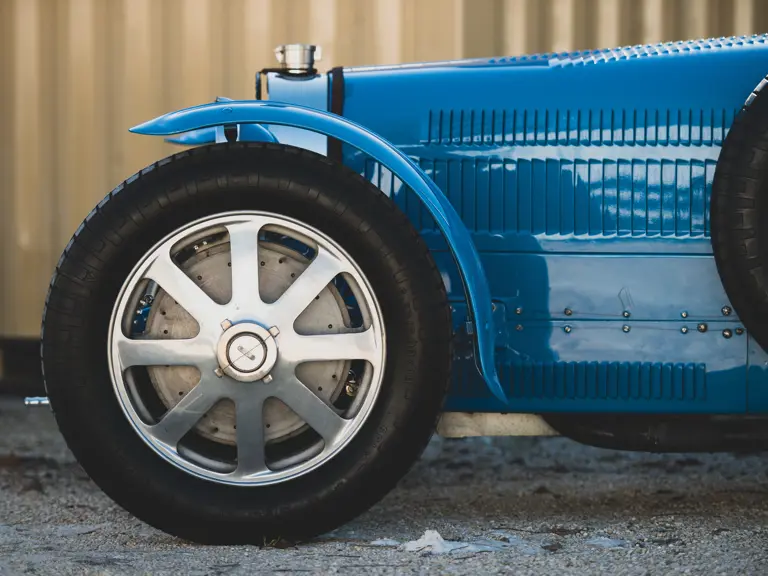
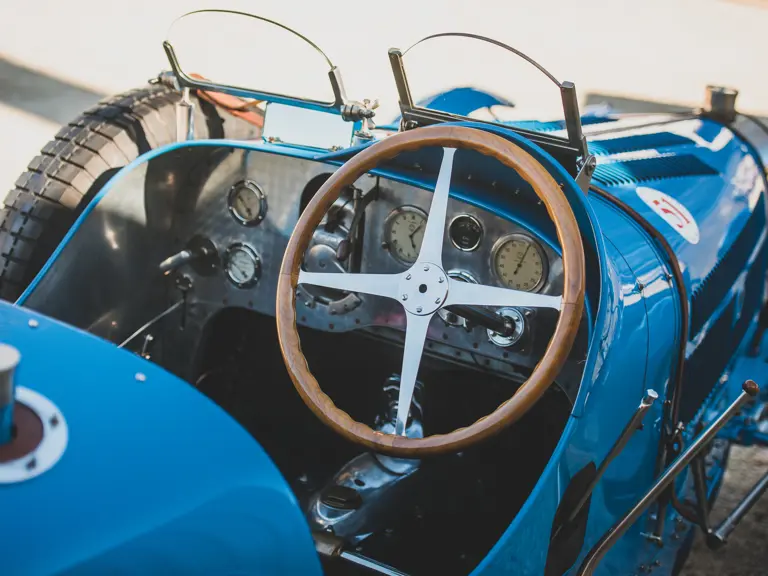
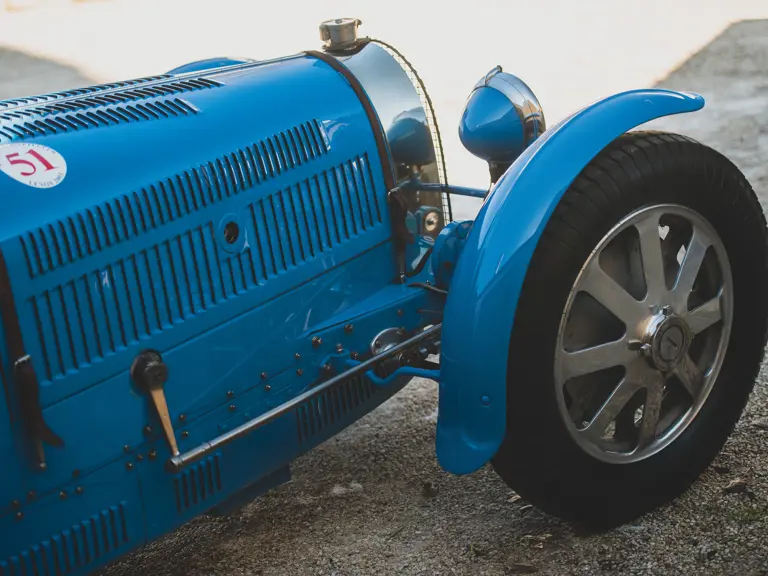
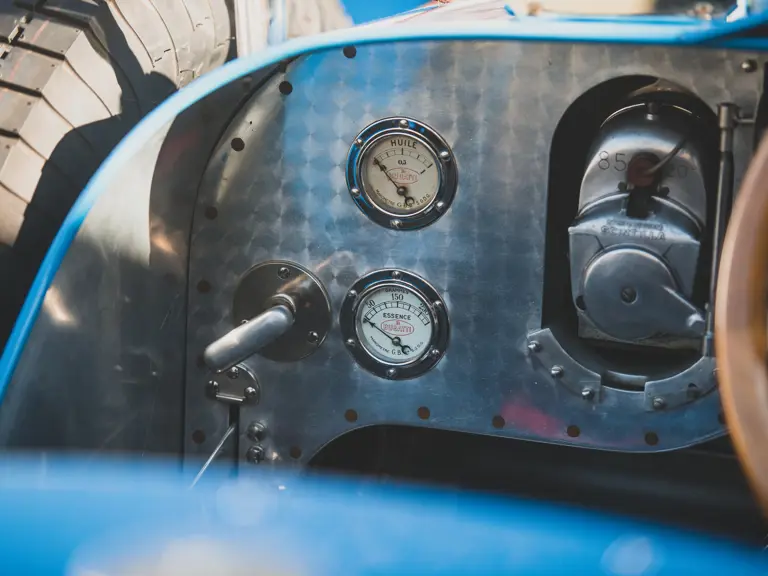
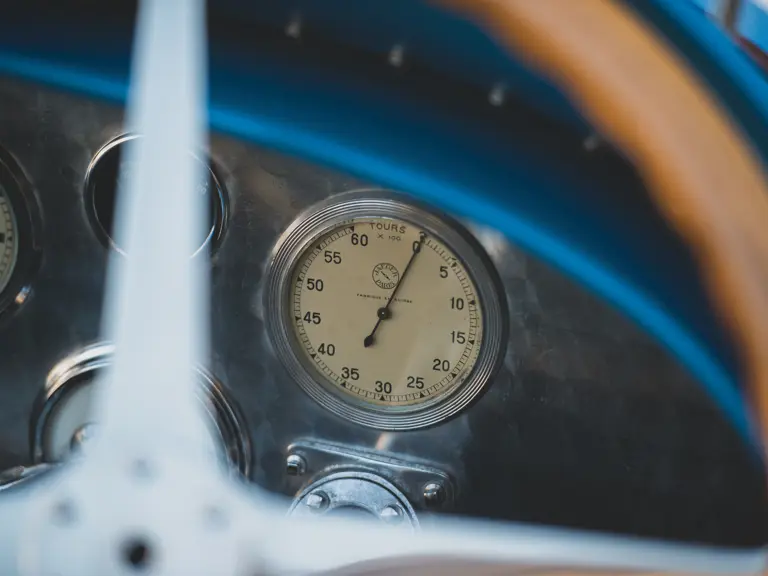
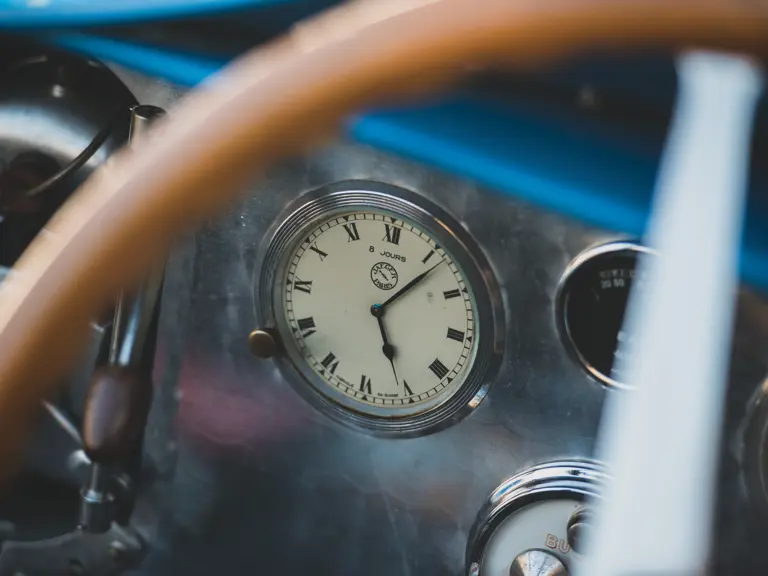
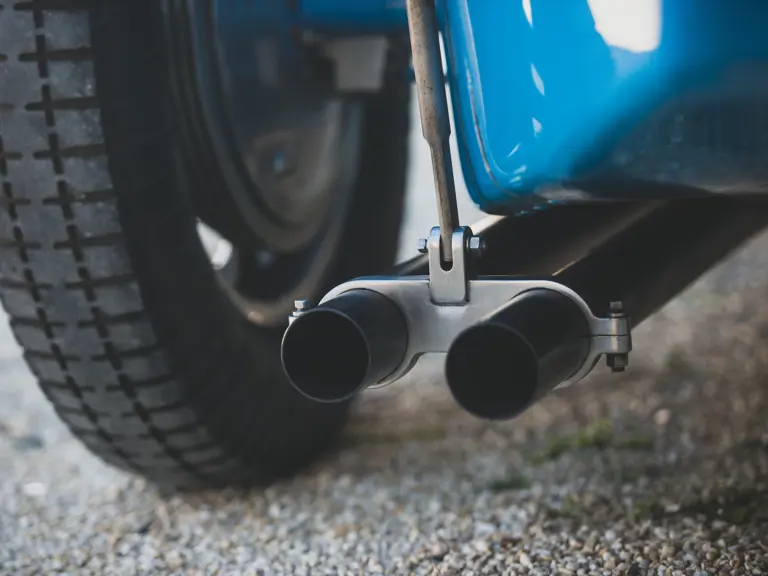
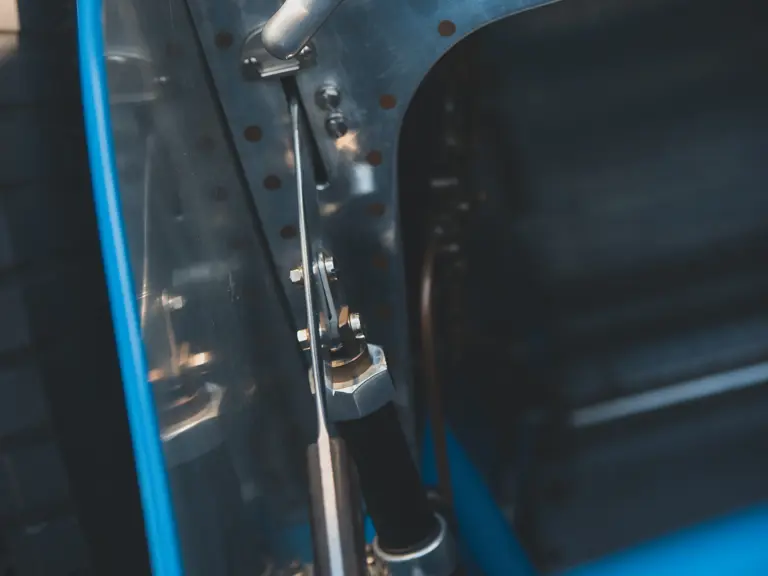
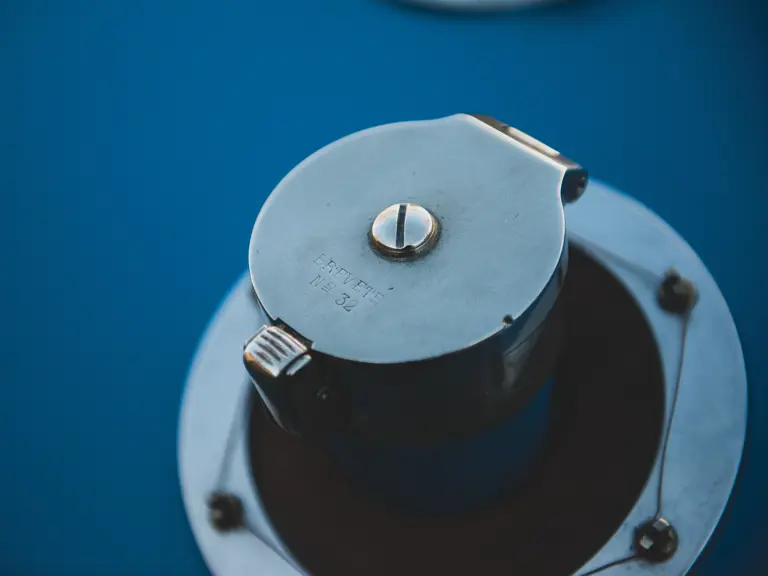
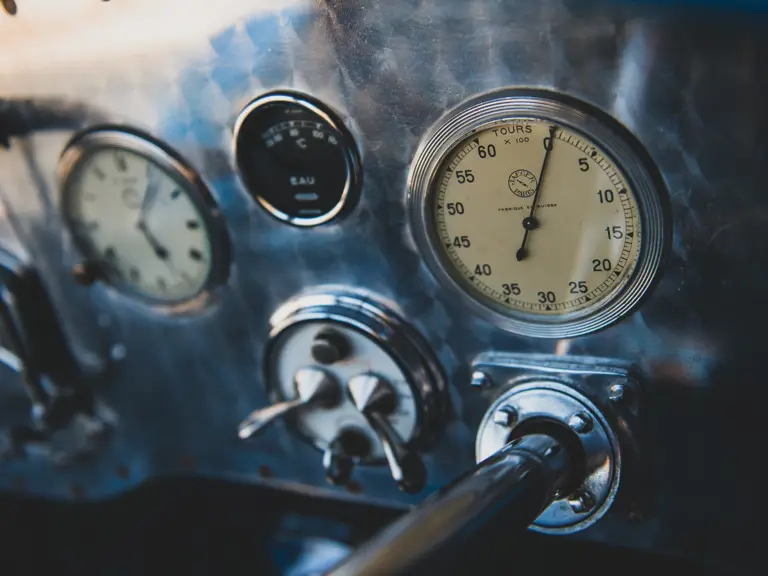
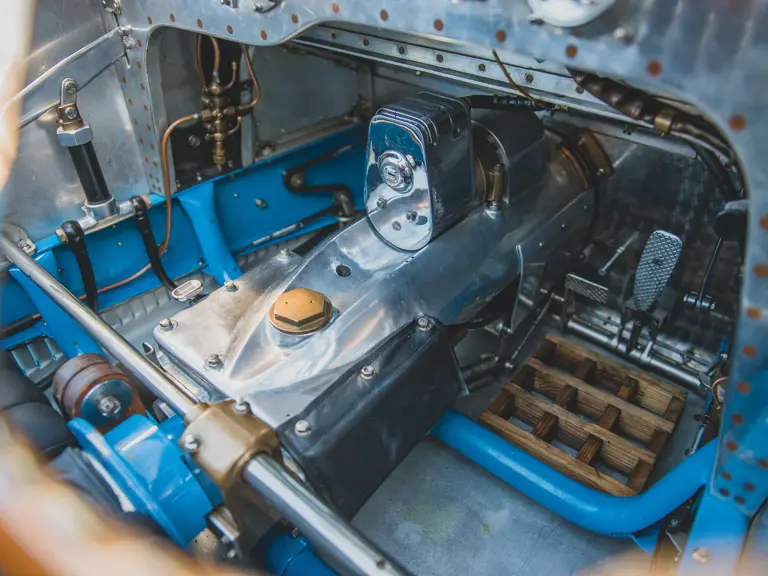
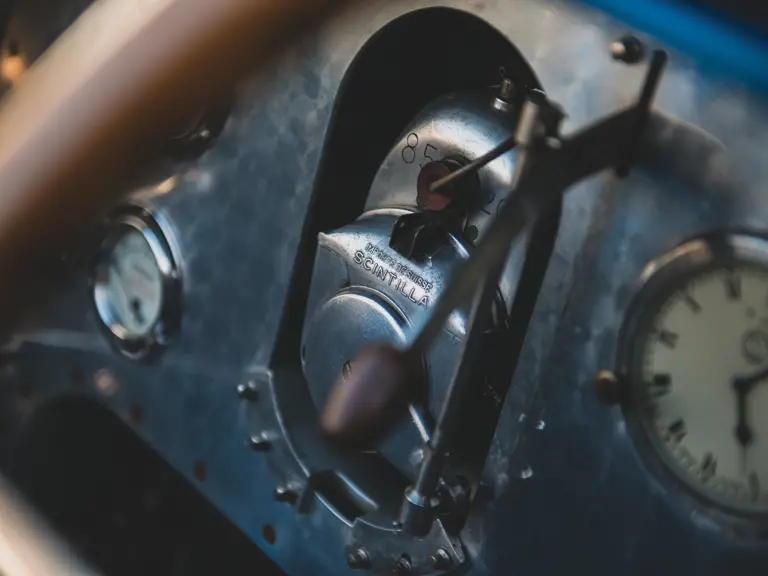
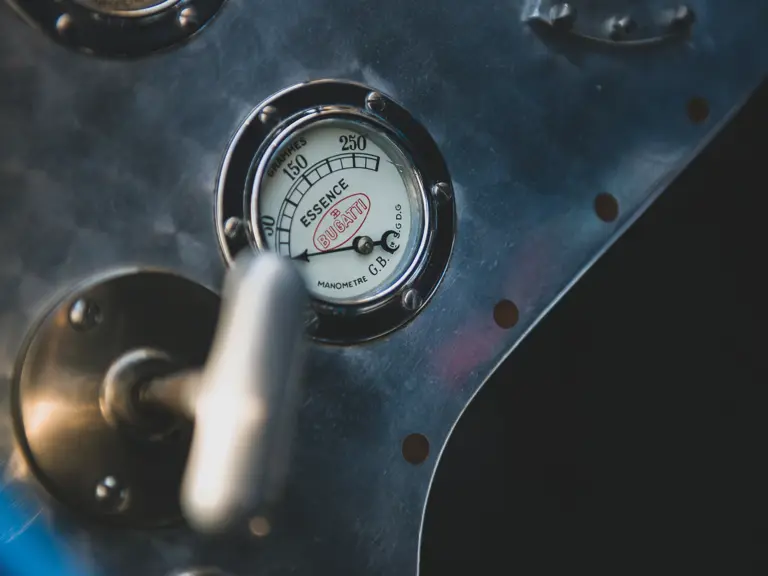
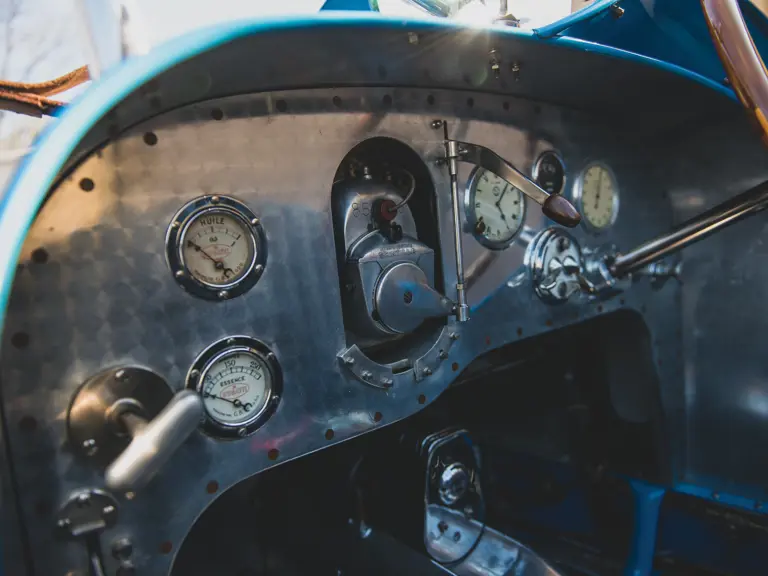
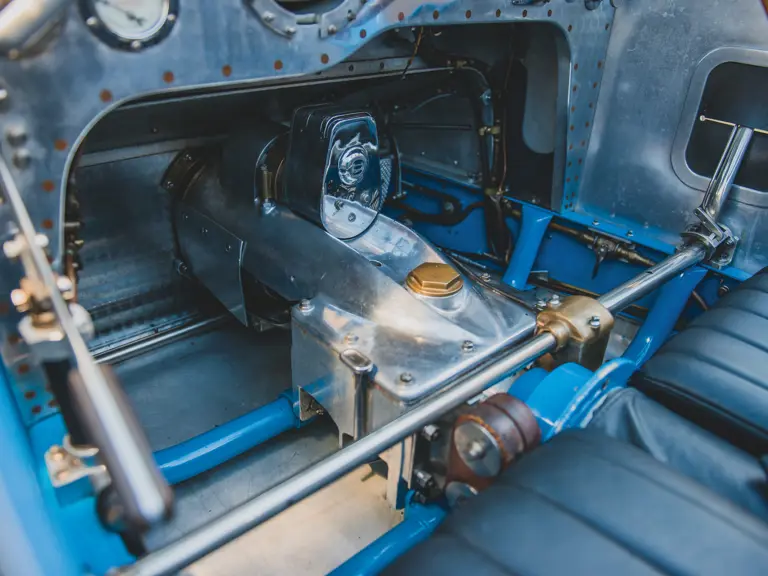
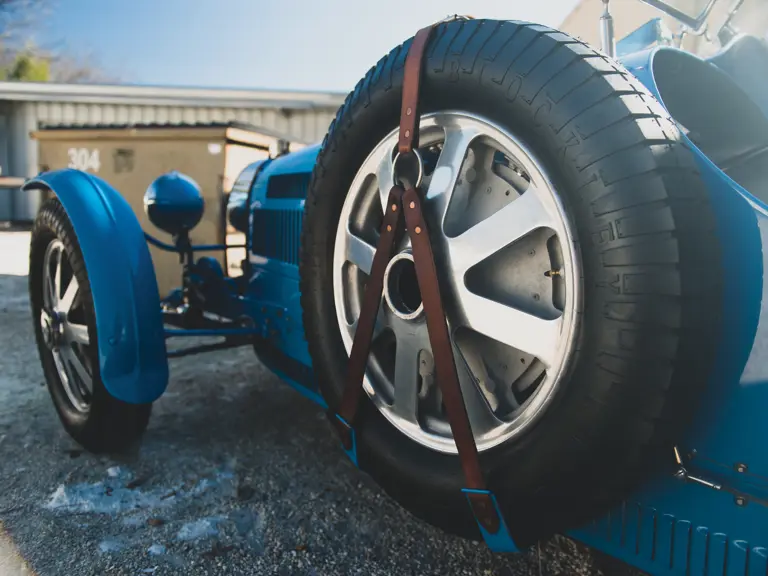
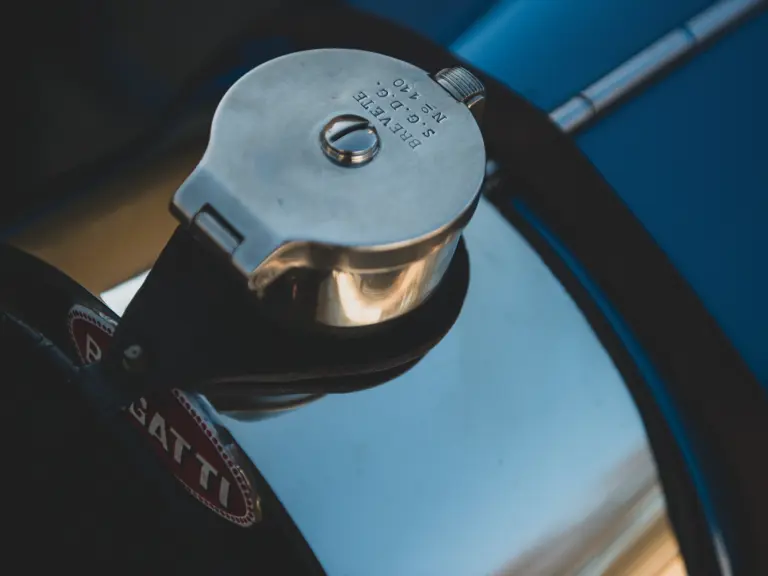
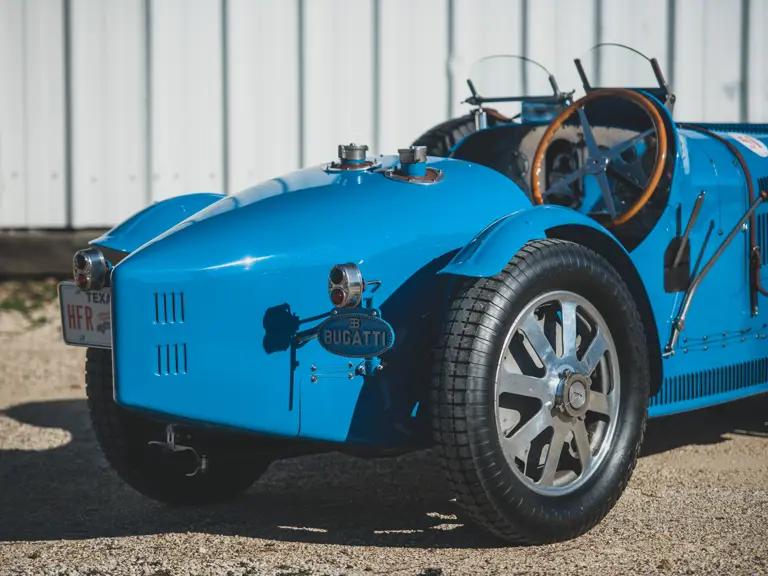
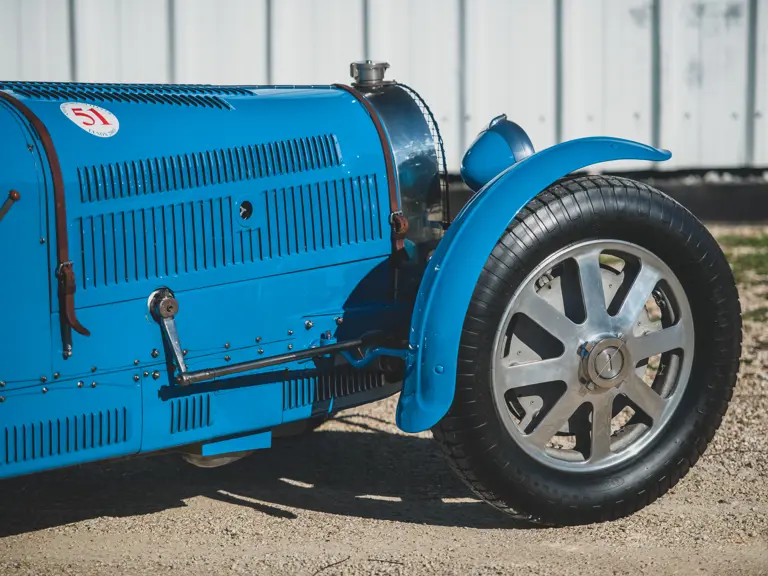
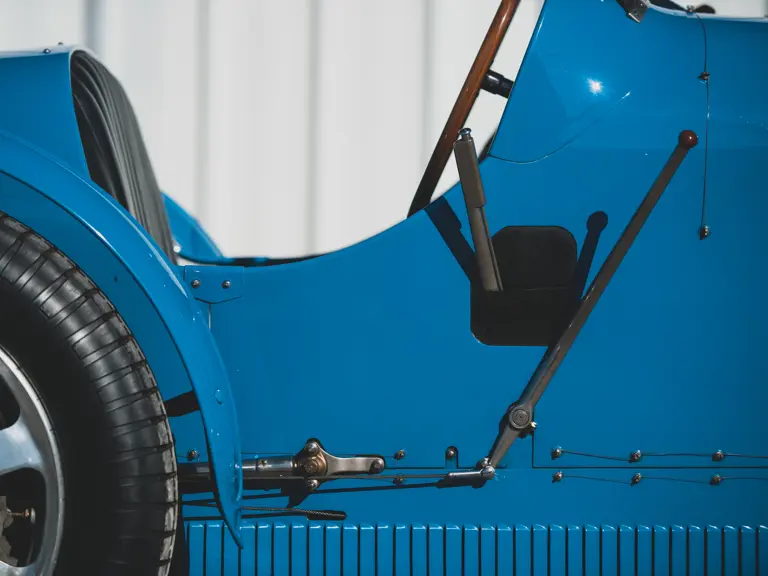
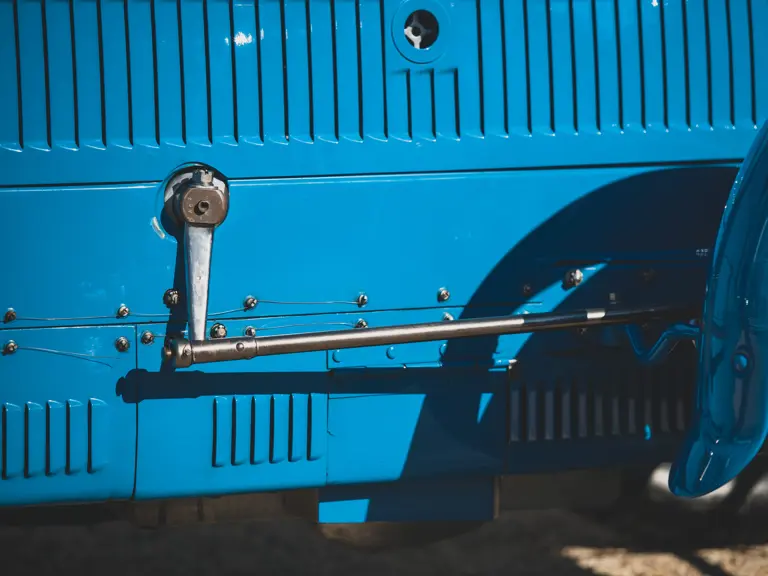
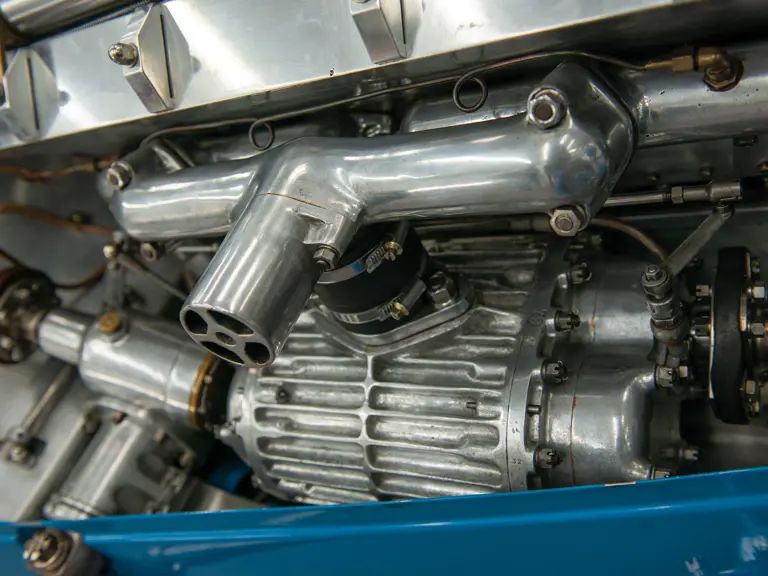
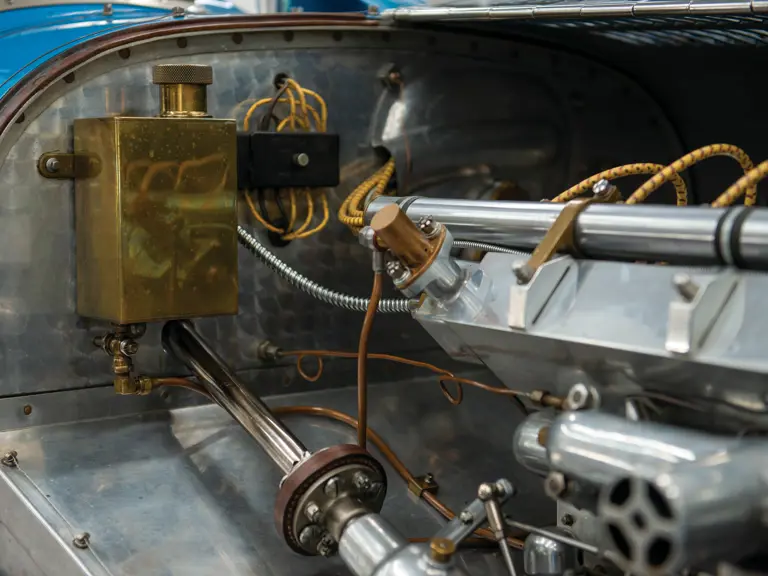
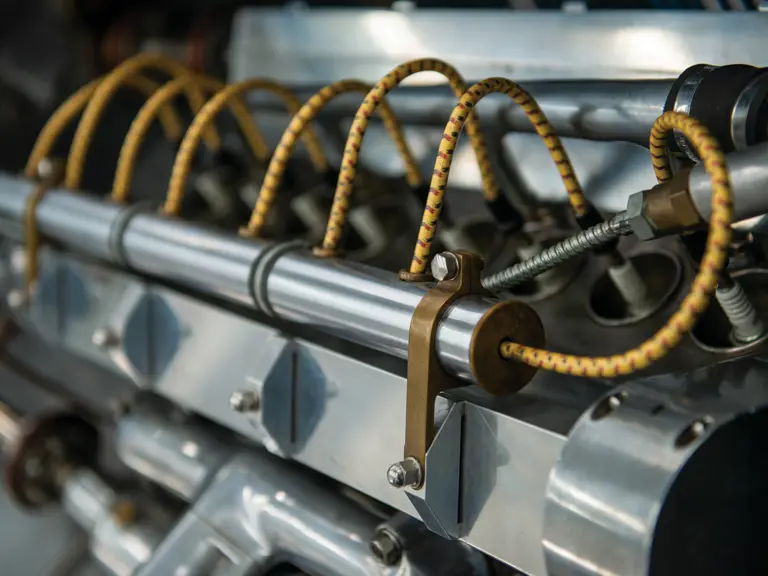
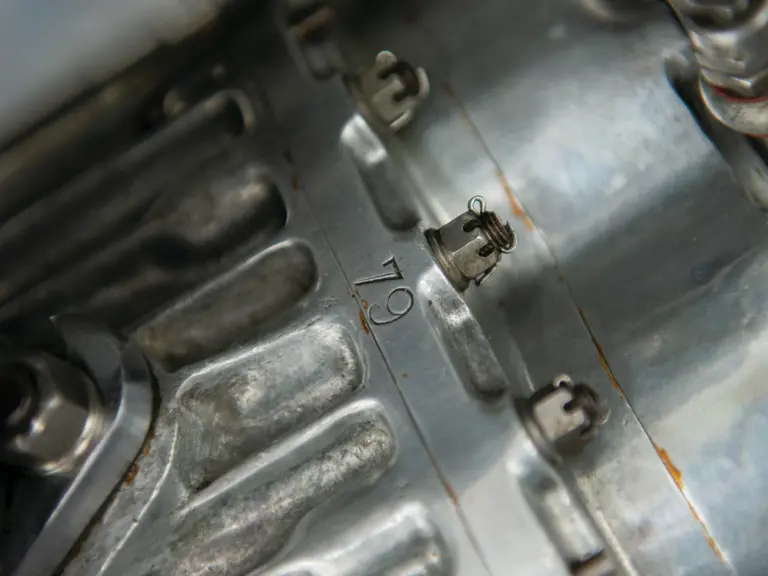
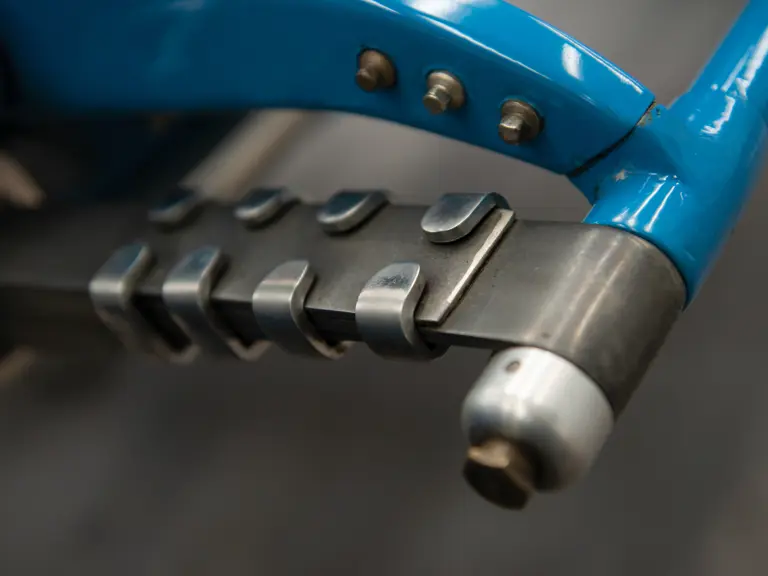
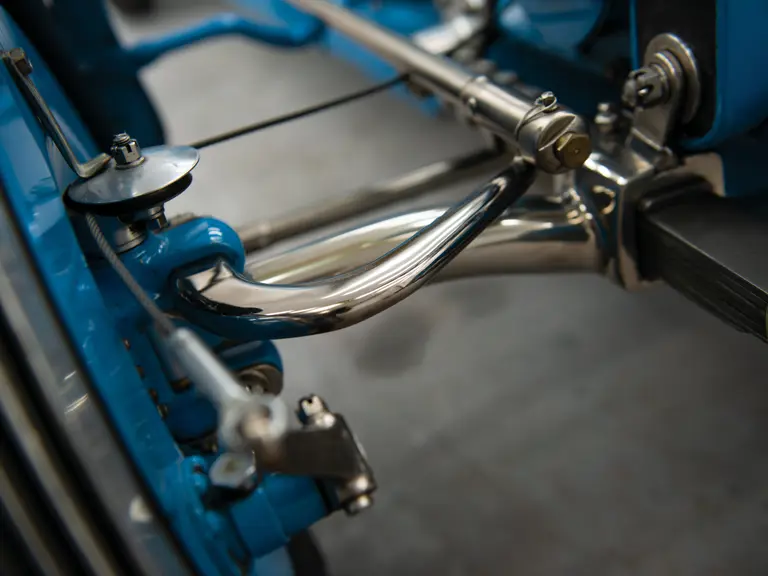
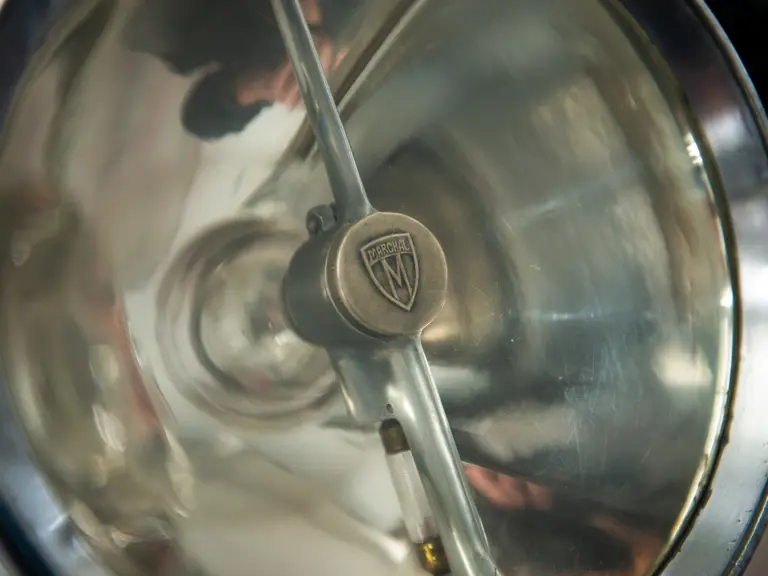
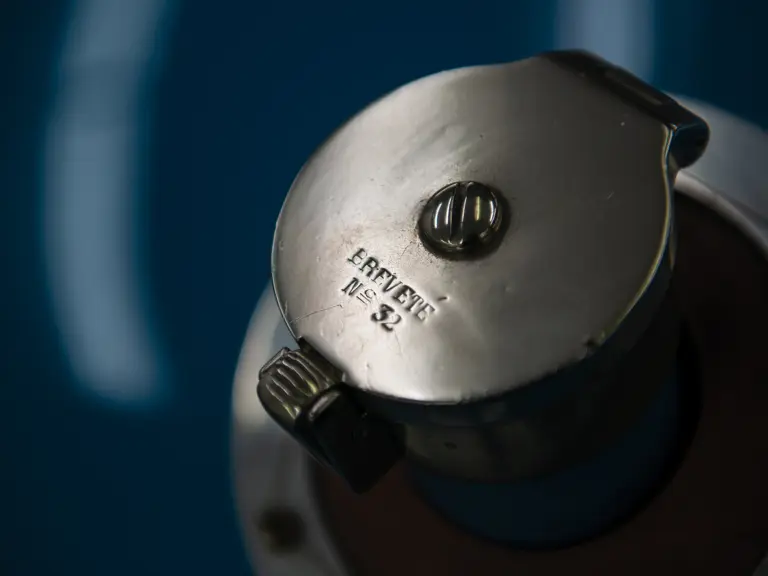
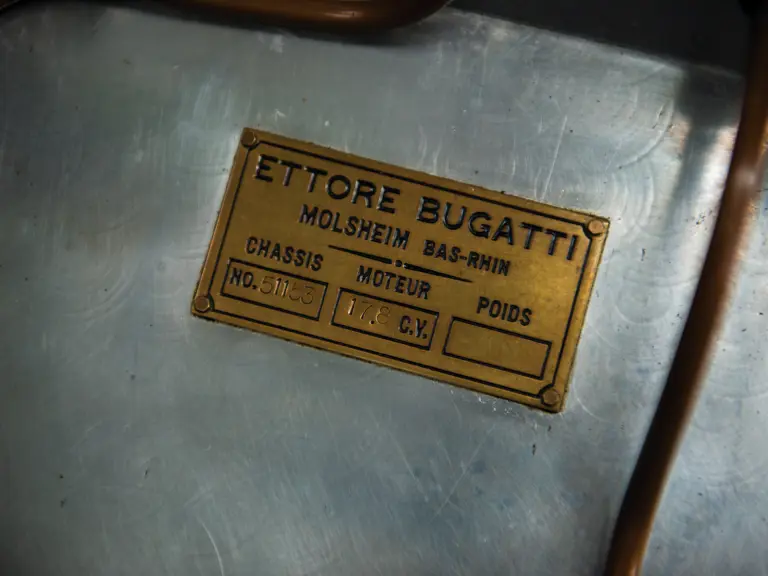
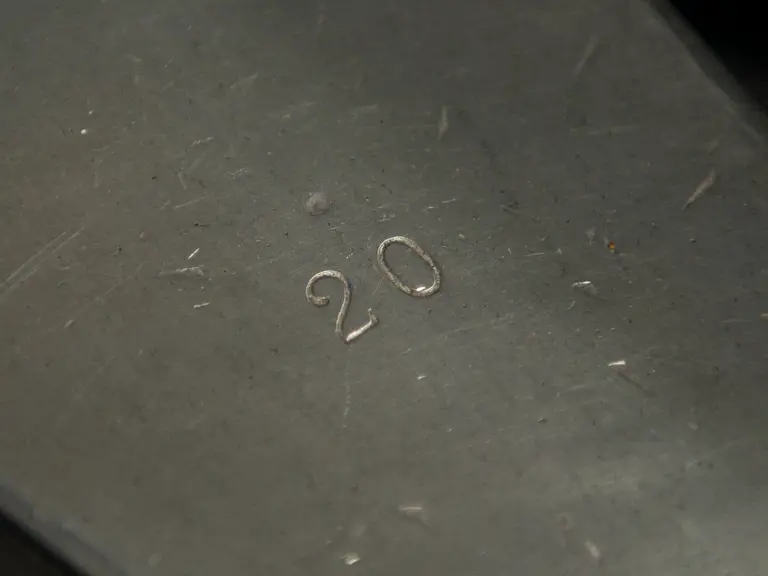
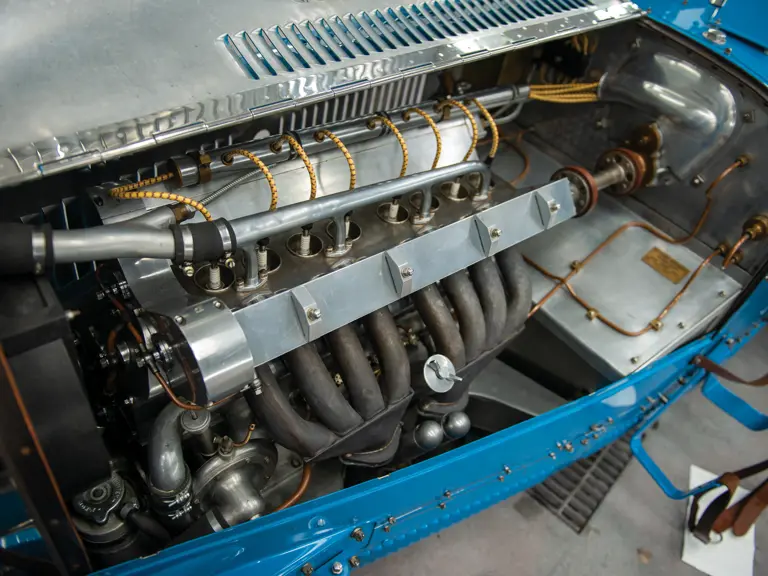
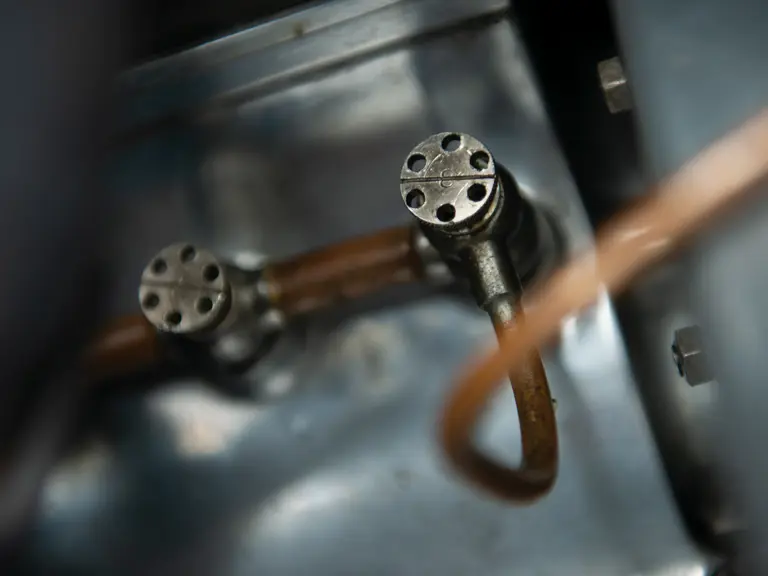
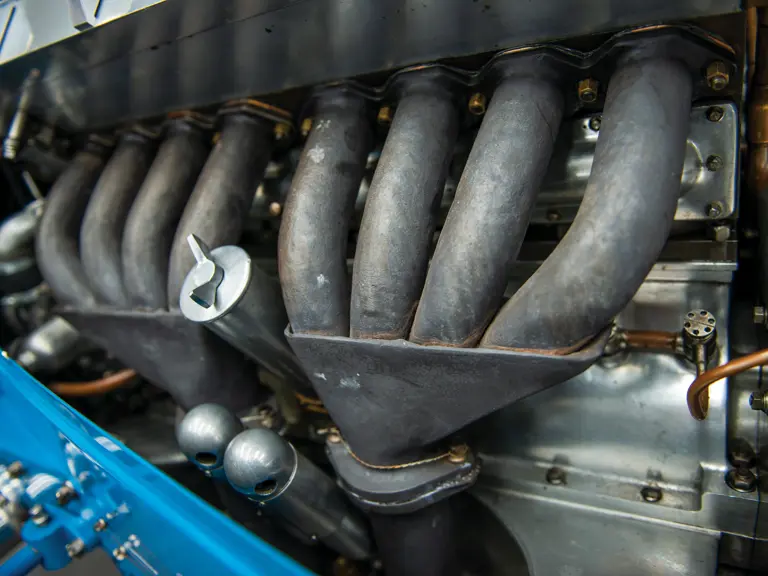
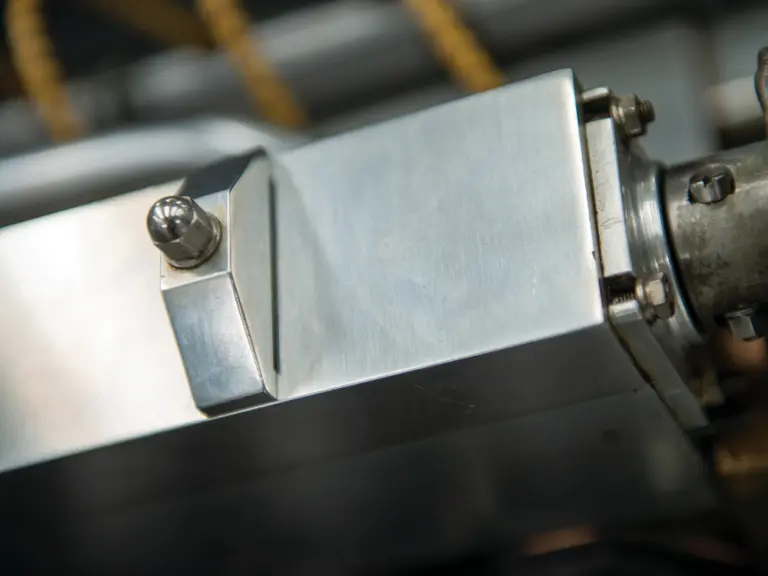
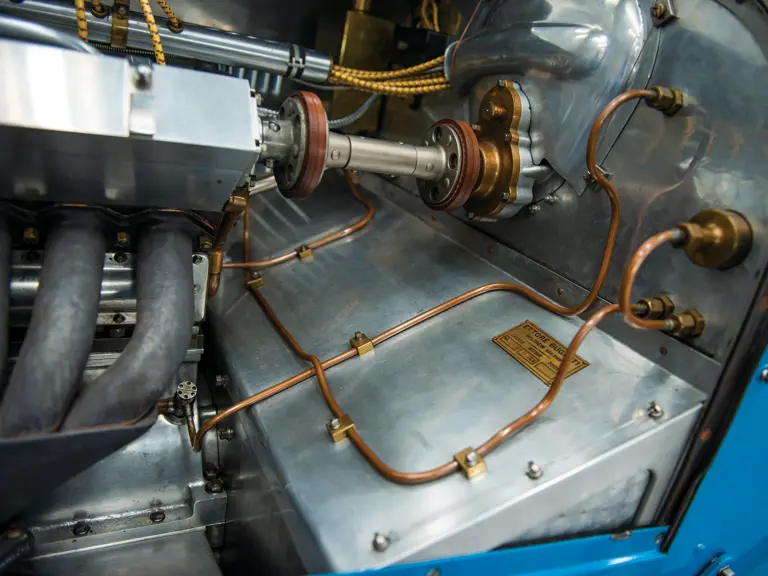
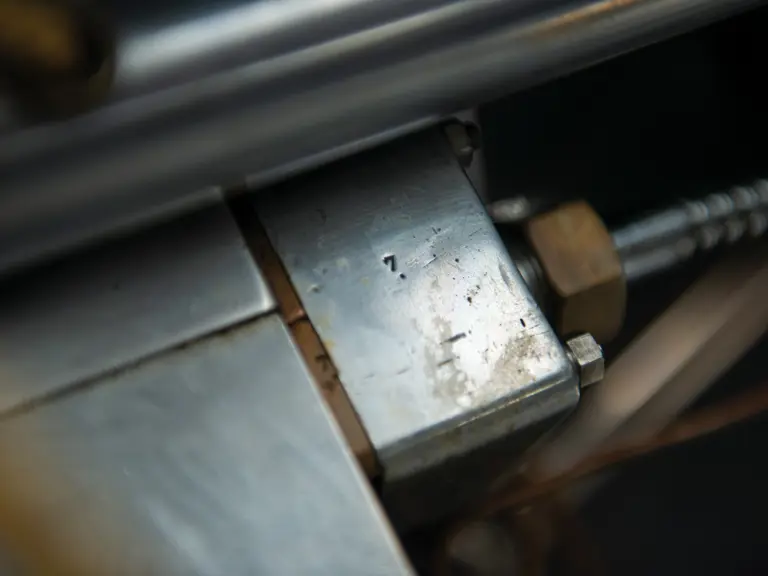
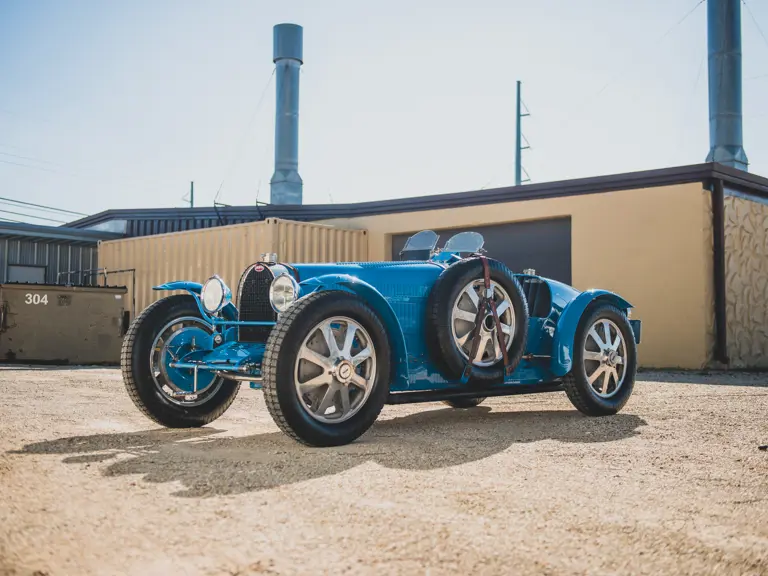
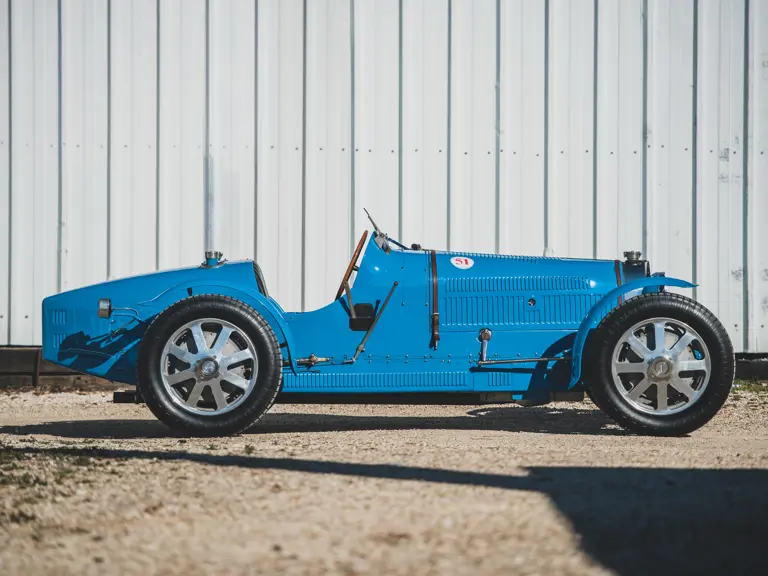
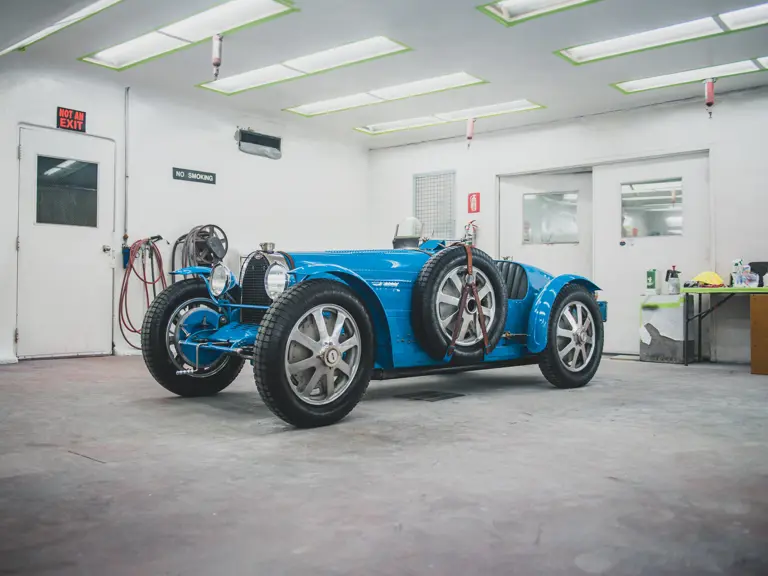
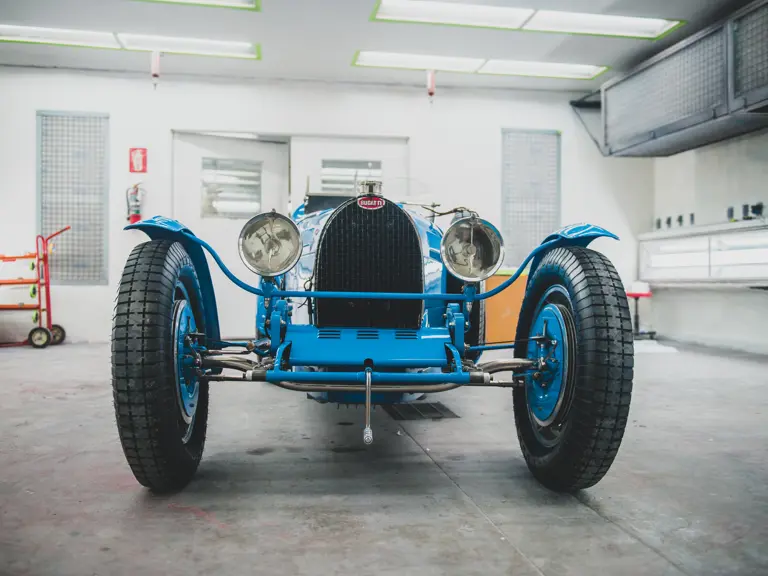
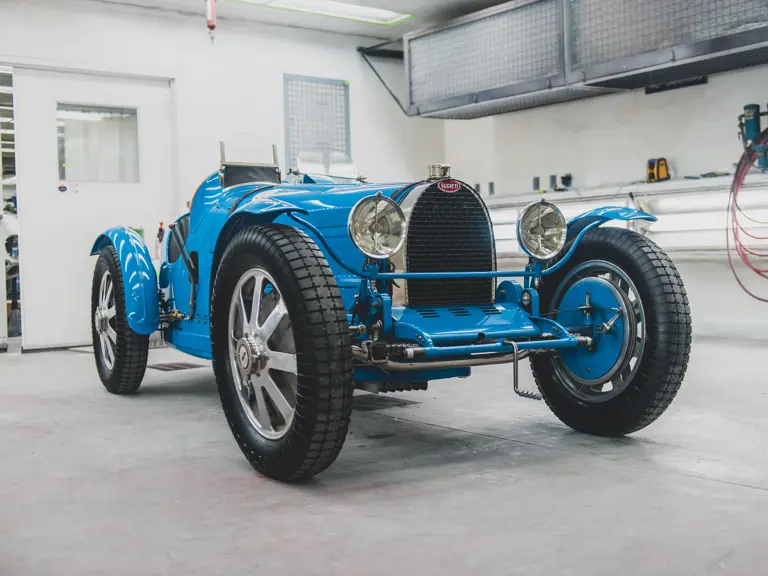
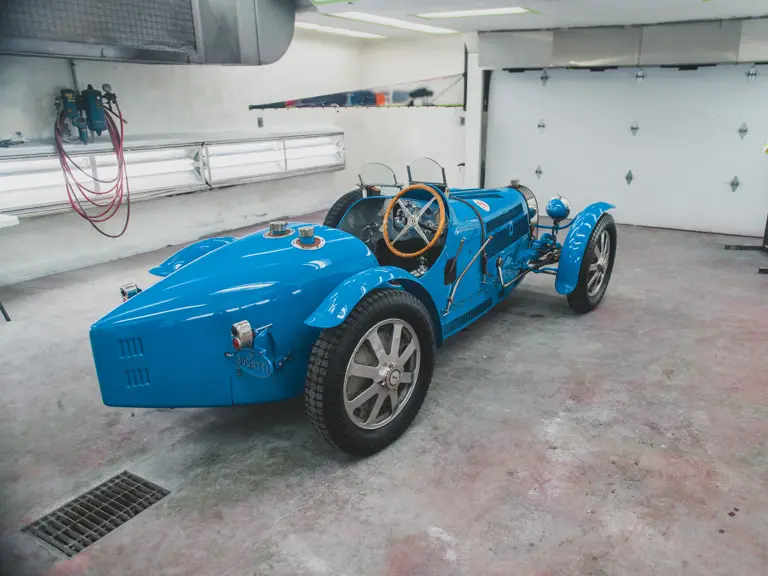
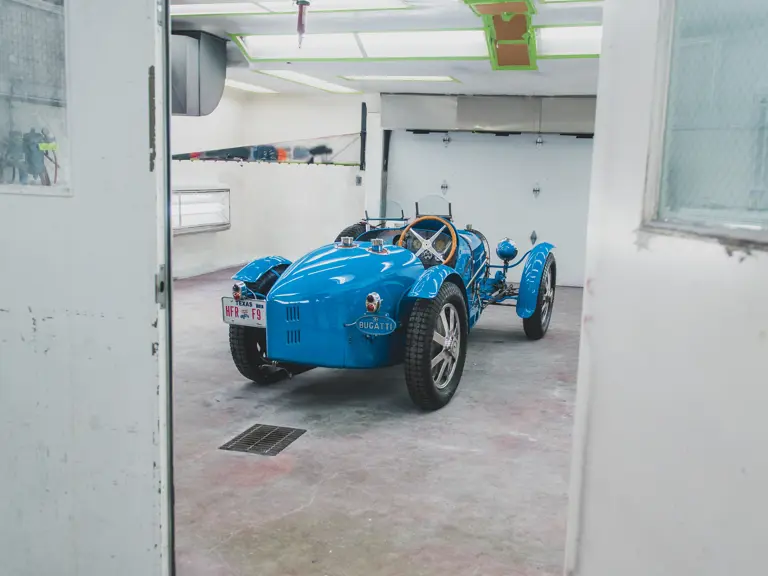
 | Amelia Island, Florida
| Amelia Island, Florida
